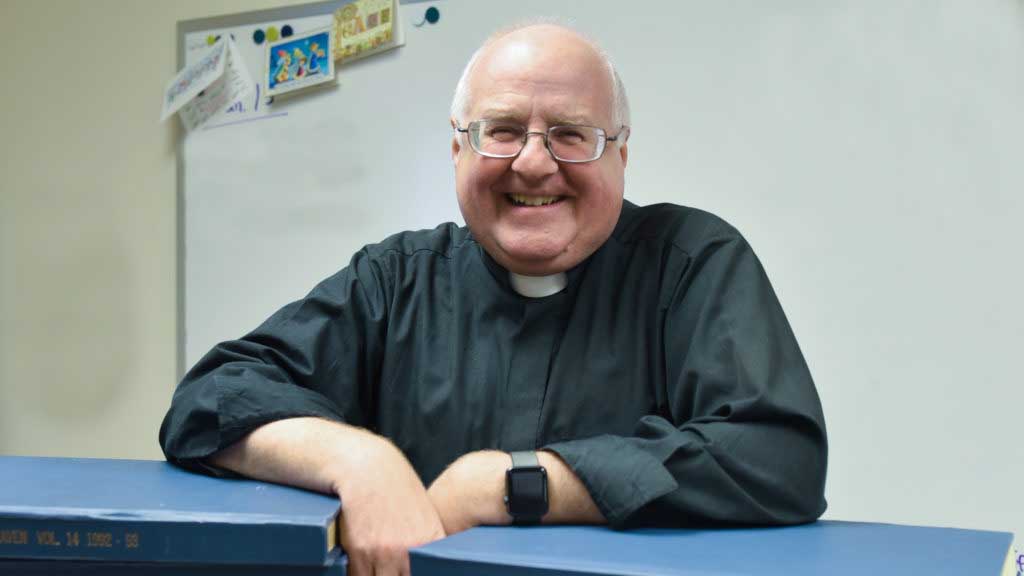
by Father Mark Goldasich
I remember well my first confession.
Our second grade class prepared for weeks, it seemed, for the sacrament. There was a kneeler in front of the class where we’d practice “going to confession.” Despite Sister Daniel’s instruction not to tell our actual sins at these practice sessions, I’m sure a lot of us did!
We trooped down to church on the big day with a mixture of excitement and fear. I’ll concentrate on just one part of my experience. The first thing I discovered was there was a big difference between kneeling in a spacious and brightly lit classroom and kneeling in a dark confessional. (This may have been the beginning of my nyctophobia, fear of the dark.)
Since this was the Dark (pun intended) Ages, we had no reconciliation rooms. There was no option for a face-to-face confession; everyone confessed anonymously through a screen. The priest sat in the middle of the confessional box with penitents on either side.
When the little door over the screen slid opened, indicating that it was my turn, I blurted out, “Bless me, Father, for.” That’s as far as I got before the pastor barked, “Whisper!”
I was so shocked at that command that all the sins on my carefully prepared list left my mind. I have no idea what I confessed; I was so flustered. Evidently, I said something because I was given a penance and headed to the front of the church to do it.
It was then that my little brain started to ruminate. Did I just make a “bad confession”? Should I go back into the confessional? Would it then be my “second confession” since my first one was “bad,” or would it still be my first since maybe the “bad one” didn’t count? Should I also confess not whispering as a sin since it apparently made the priest angry?
Well, apparently the Holy Spirit banished those misguided thoughts because I didn’t head back to the confessional that day.
Sadly, I think many folks view this sacrament with fear — maybe due to a bad experience in confession or embarrassment at their sins. Pope Francis is so right in reminding us never to forget the loving mercy of God that is at the heart of confession.
Since many parishes are offering communal reconciliation services during Lent as well as the Wednesday night times, here are a few suggestions I have after some 42 years of hearing confessions:
• Spend time preparing for the sacrament using some examination of conscience. There are many available online, just Google “Catholic examination of conscience.” Many parishes also have a printed pamphlet to help.
• It’s perfectly fine to come with a written list of what you’d like to confess. This also applies to having a written act of contrition. The sacrament is not a memory test.
• Be respectful of the people behind you in line. If you think your confession might be lengthy or you need some guidance on an issue, for example, it’s best to schedule an appointment with a confessor so adequate time and attention can be given to the sacrament.
• Don’t be afraid. You’re confessing your sins to a fellow sinner, the priest. He’s there as an instrument of God’s mercy, not as a judge, and will assist you in any way possible.
• Remember that the penance is something proposed to you, not imposed. If the penance seems unclear or impossible to fulfill, let the priest know.
Because confession should be an experience of joy, I’ll end with this funny little story:
In a sermon, a preacher announced that there were 789 different sins. A few days later, the mailman delivered 94 requests from parishioners for that list!


